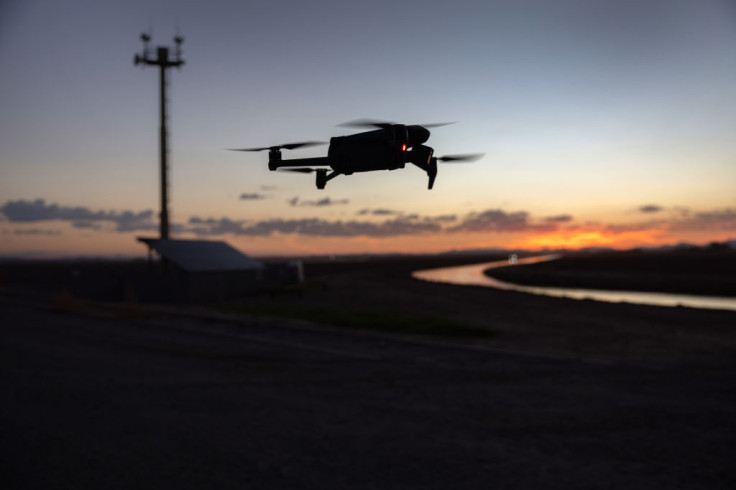
Law enforcement and government officials in northern Mexico continue to be targeted by drug cartels, which continue to retaliate as the government intensifies its crackdown on organized crime.
The border city of Tijuana was the latest to be impacted, when a police station was attacked by drones carrying explosive devices.
Days after the incident, Baja California Attorney General María Elena Andrade Ramírez confirmed that a cartel was behind the attack, which specifically targeted the station's anti-kidnapping unit. Although authorities had not yet identified the organization responsible, Andrade Ramírez said the motive was evident.
"It was an attack directly on the patio of our installation," she said. "As a way to ease the public's mind, this was not an attempt on the residents, and we don't believe it has anything to do with our proximity to the border," Andrade Ramírez said, as reported by Border Report.
As noted by The Latin Times three drones equipped with explosives, containing nails and pieces of metal, targeted the facility last week and damaged several police vehicles parked outside. No injuries were reported.
Andrade Ramírez announced the incident was being investigated as an act of terrorism. She also clarified that the objects used were not Molotov cocktails, despite earlier reports from local media.
"It was not an incendiary device. The bottles were set off," she said.
She denied reports that shots had been fired at drones flying in the area shortly after the attack and refrained from attributing the incident to any specific cartel or organized crime group.
"We will continue to carry out our objective and follow all leads," she said.
Authorities believe the drone attack may be connected to a separate incident that occurred last month in Ensenada, about 70 miles south of Tijuana. In that case, the offices of the anti-car-theft and anti-kidnapping units were vandalized, and several police vehicles were set on fire.
The recent attacks in Baja California, particularly in Tijuana, have also raised alarms across the border. Following the drone incident, the U.S. Consulate in Tijuana advised American citizens to avoid the area and to keep friends and relatives informed of their location and safety.
Andrade Ramírez said seven people had been arrested in connection with the arson case in Ensenada.
In recent months, more and more reports have surfaced of criminal organizations using advanced drone technology for surveillance and, in some cases, to carry out attacks against law enforcement and rival groups.
Earlier this year, a former operative for the Cártel Jalisco Nueva Generación (CJNG) said in an interview that the group modifies agricultural drones to drop explosives on rival factions.
Similarly, U.S. officials have warned about the growing number of drone sightings involving criminal groups.
Steven Willoughby, deputy director of the Department of Homeland Security's counter-drone program, told a U.S. Senate committee last month that cartel-operated drones conducted more than 27,000 flights within 500 meters of the southern border during the last six months of 2024.
"It's just a matter of time until Americans or law enforcement agents are targeted," Willoughby said, adding that cartel drones have been linked to more than 1,500 arrests along the southwest border.
Some groups, including La Mayiza, a faction of the Sinaloa Cartel, have reportedly obtained military-grade drone-jamming equipment. Others have used drones armed with explosives to displace entire communities in northern Mexico.
A recent report by The Telegraph revealed that, as drones become an increasingly important tool for criminal organizations, cartel members from Mexico and Colombia are joining foreign fighter groups in Ukraine to enhance their drone warfare skills.
According to the report, these individuals are enlisting in Ukraine's International Legion to learn how to operate first-person view kamikaze drones. The devices provide a live video feed, allowing pilots to guide explosive-laden aircraft directly to their targets.
Sources cited in the report said cartel operatives are exploiting Ukraine's limited ability to vet foreign recruits. Several international fighters told The Telegraph that background checks are rare and that military or civilian records are often not reviewed, creating opportunities for individuals with criminal ties to enlist with little scrutiny.
© 2025 Latin Times. All rights reserved. Do not reproduce without permission.







